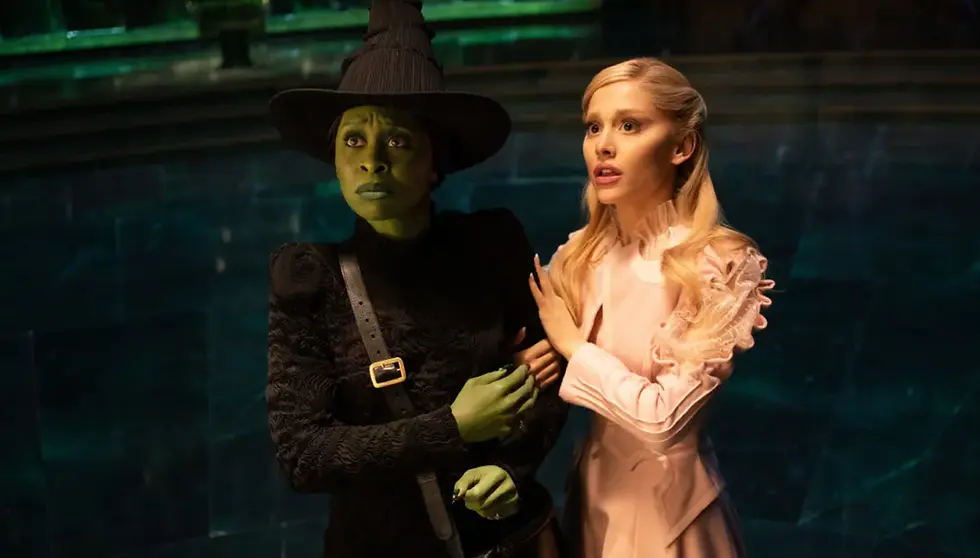The Light in the Piazza/Merrily We Roll Along - Royal Academy of Music
- comaweng
- Jul 9, 2022
- 4 min read
I read with interest a social media comment about London not being quite the same as it was pre-pandemic. Of course it isn’t, for many reasons, but this particular tweet was on about how (relatively) friendlier people are in general – that little bit more helpful than they used to be, and more willing to chat with others. I caught a whiff of that when I went to the Royal Academy of Music to see their musical theatre students perform in a student production of The Light in the Piazza: a couple of people in my row went out of their way to engage in conversation with me, which was a pleasant surprise, not that I, being naturally introverted, ever begrudged being ignored in a theatre.

I’d been to their shows pre-pandemic, and had a couple of unpleasant experiences with other patrons there. One man insisted on talking through the course leader’s introduction, because it wasn’t strictly speaking part of the actual performance, and so it was (he believed) his right to ignore the praise being lavished on the students for their hard work over the semester. Another time, I was yelled at by a woman who insisted I was sat in one of her seats – apparently, they were her personal property. She offered no apology when I showed her my ticket which proved I was correctly seated.
So it was pleasing to be amongst friends of cast members who were genuinely supportive not only of their friends but of the production. A young lady, Katie, had brought flowers for her friend Jade Oswald, who played Margaret Johnson in the show – the thing about student productions is that the mother looks more or less the same age as the daughter, mostly because the actors playing them are of similar age. A young man, Ralph, had bought a ticket partly to see his friend Sebastian Harwood, only to discover he is in something called Cast Z, which wasn’t performing on the night we were there. We had the pleasure of Cast A instead. It didn’t matter in the end, Ralph said, talking about how he fell in love with The Light in the Piazza after participating in a sitzprobe hosted by the London Musical Theatre Orchestra, so wanted to see the show regardless.

I found this production more accessible than the semi-staged concert version I saw at the Royal Festival Hall in June 2019. Perhaps it needs to be fully staged to be fully understood! Also, nobody was focused on the star quality (or otherwise) of the likes of Renée Fleming, an American soprano singer, or her stage daughter, Dove Cameron. Cameron is known for her pop music career and a star role in a Disney Channel comedy series, which resulted in large numbers of prepubescent girls dragging their parents along to the Southbank Centre to see their idol in person, only to discover the show is far removed from the worlds of pop and Disney.
Abi Hudson as Margaret’s daughter Clara stood out vocally for me, while Fabiola Ocasio’s Signora Naccarelli brought the house down with a comic twist in the second half. The set design (Simon Kenny) suitably reflected each scene, whether in the bustling streets if Florence, the shop run by the somewhat stereotypically expressive Signor Naccarelli (Harel Glazer), or an art gallery, or a hotel room. Kenny was also the designer for Merrily We Roll Along, the other show being showcased by RAM musical theatre students, which I had the privilege of seeing a couple of weeks later.
This felt much more of an ensemble show than Piazza, perhaps because seven actors played the various named characters, with just as many, if not more, forming the ensemble. The storyline too is partly about teamwork, whether in the form of musical collaborations between composer Franklin (Ryan Wolpert) and lyricist Charley (Joe Winter) or personal relationships, whether or not in matrimony. Invariably they were in matrimony, by way of the era in which the show is set, covering the period 1957 to 1976.

As the scene in 1973 was set in the NBC Studios in New York City, a news anchor made a timely reference to ‘Roe v Wade’. At the time of writing, the 1973 landmark decision of the United States Supreme Court, had very recently been overruled by ‘Dobbs v Jackson Women’s Health Organization’, which leaves abortion restrictions to be defined by each state. Pointedly, the court held that there is no constitutional right to an abortion after all. In practical terms, it appears to mean that access to abortions has become what we in Blighty would call a ‘postcode lottery’ – what is available in one state will differ from what is available in another. Still, the company in this production preached without being preachy, and their point was subtly and sufficiently made.

Regardless of topical current affairs, there’s something timeless about Merrily, in its exploration of the ups and downs of personal and professional life. It ensures a musical happy ending by a narrative presented in reverse chronological order, thus quite literally concluding with the joys of youth. Both Lya Luca’s Beth in the first half and Lucy Brindle’s Gussie in the second half were overpowered by a sizeable orchestra, but otherwise it was an excellent evening. The orchestra, conducted by Livi van Warmelo, were vibrant and energetic – quite a few of us in the audience stayed to the end of the playout music, even though it’s called ‘playout music’ for a reason. That’s probably the strongest endorsement of musicianship an audience could give an orchestra.




Comments